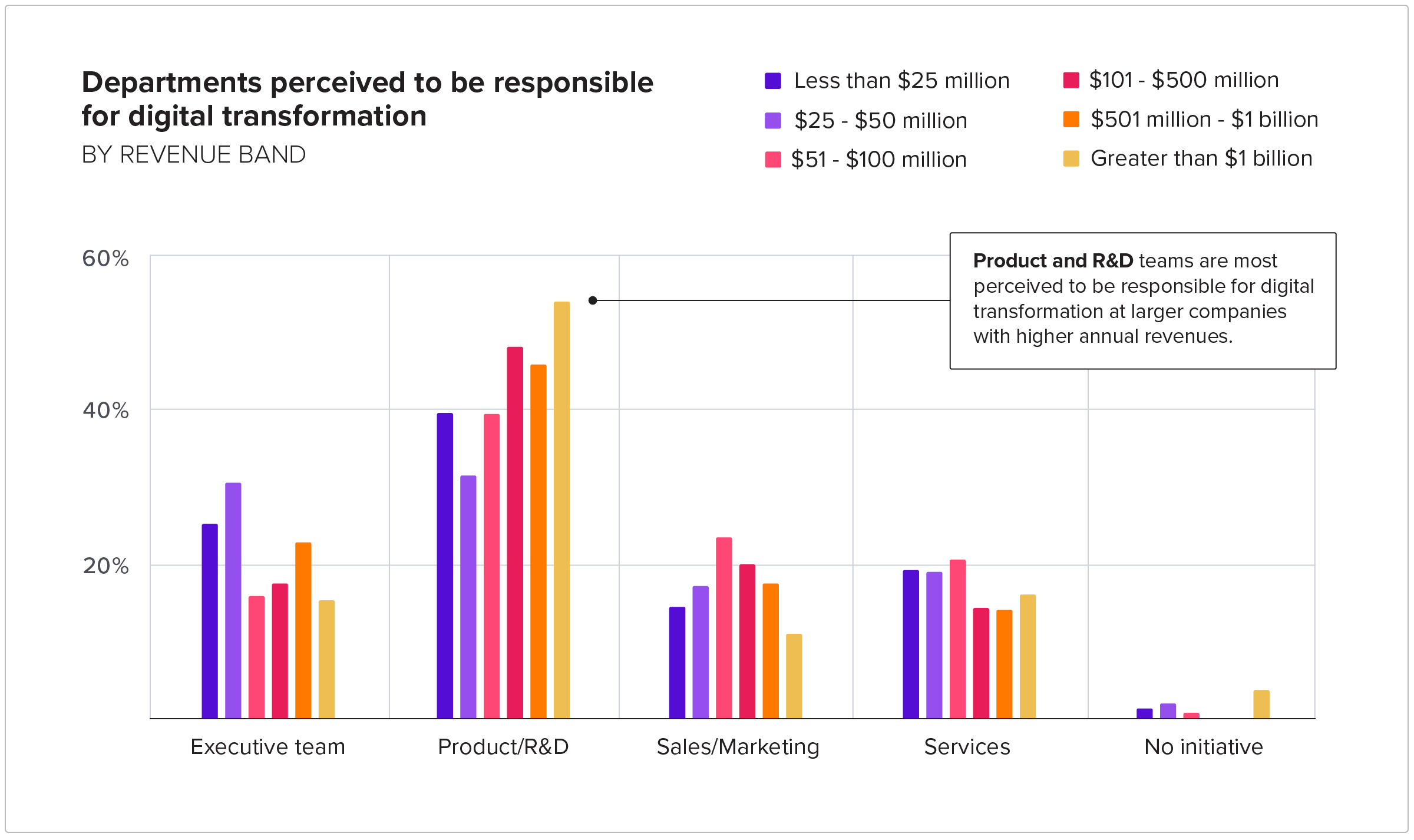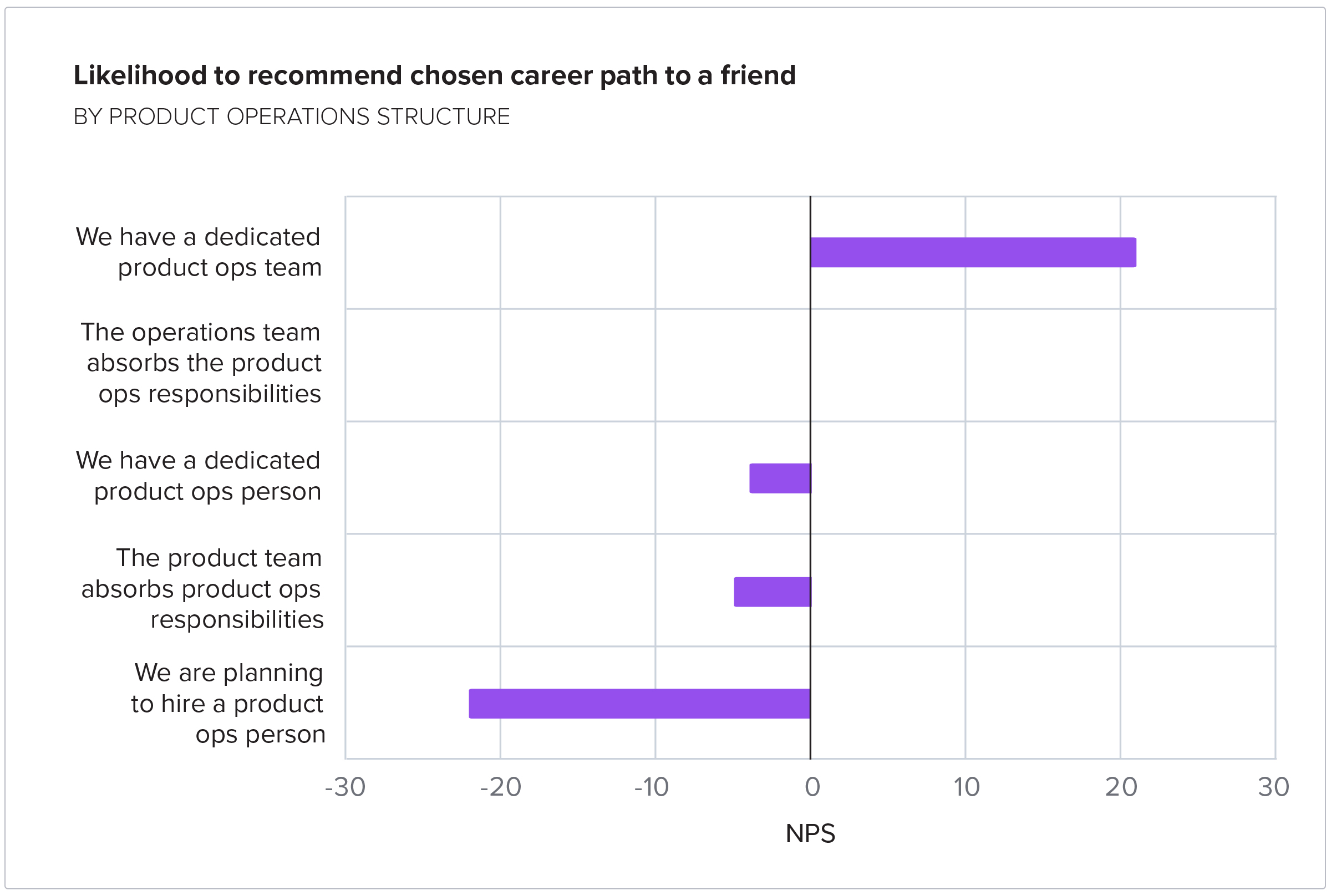Introducing the State of Product Leadership 2021: The new digital transformation normal
Every year, Pendo and Product Collective set out to take the pulse of the product industry and examine the evolution of the product manager (PM) role. Each report offers new trends and insights that build on the previous year’s, and to say that a lot has changed since our last report would be an extreme understatement. COVID forced businesses to accelerate (or quickly establish) digital transformation efforts, putting product leaders at the forefront of business decision making.
For this year’s State of Product Leadership report, we surveyed 600 product professionals in the United States, Canada, the United Kingdom, France, and Germany (if you’d like to read the Europe-specific report, check it out here). The 2021 global survey and analysis coalesce around the idea of momentum: How can product leaders stay on top of this historic time of fast-moving change?
Here are a few key takeaways from this year’s survey:
Digital transformation is in product’s (very capable) hands
One of the purposes of this year’s survey was to examine the product team’s role in digital transformation. Given their cross-functional position in an organization and blend of business and technical skills, product leaders seem well-suited to lead the charge here. Our survey respondents echoed this sentiment, with two-thirds of respondents perceiving product and R&D teams to be responsible for digital transformation.
Things get even more interesting when we break down the responses to this question by company size.

Responsibility levels for product teams increase at larger companies with higher annual revenues. This could be due to a few different reasons. Larger enterprises are likely pursuing digital transformation more aggressively, whereas startups and smaller software-as-a service providers are already digital-first. Companies with higher annual revenues also have more resources and money to put toward digital transformation, which means these initiatives are larger and require more support from product and R&D teams.
Product leaders are increasingly responsible for revenue
This year’s survey revealed that product leaders are three times more likely to be responsible for revenue than last year’s respondents (18% vs. 6%). The uncertainty of the pandemic caused companies to rethink their growth plans, with many of them turning to product-led strategies to ensure survival and longevity.
That’s not to say that revenue is the only area of focus (or measure of success) for product practitioners. While respondents ranked their responsibility for product/vision strategy and digital transformation the highest, product leaders are working across business functions and see themselves as responsible and accountable for things like go-to-market execution, product positioning, and roadmap/prioritization.
Revenue also came second to product/feature/roadmap delivery as product leaders’ top measure of success for customer-facing applications. Although revenue is more important than ever, the product teams’ work is still rooted in delivering on what they promised—something that’s particularly crucial for digital transformation initiatives with pressing timelines.
Operational support and clear responsibilities fuel job satisfaction
There’s no question that digital transformation is putting added pressure on the teams and individuals who are responsible for strategizing and delivering these initiatives. When we asked respondents to rate their likelihood to recommend their chosen career path to a friend or colleague, we found some bright spots in these Net Promoter Score (NPS) responses.
Product leaders at companies with a dedicated product operations team reported the highest NPS scores (21) out of any sub-group, which speaks to the impact this role can have on an organization.

This level of support frees up product leaders to focus on building the right features and evolving a product’s strategy, while product ops provides operational excellence and communication around product launches, feedback collection, and customer onboarding.
Our survey also highlighted the notion that employees are happier when companies empower them to do great work. We found that the more ownership product leaders have, the more likely they are to recommend their career paths to others.
For a more in-depth look at the challenges and opportunities product teams are facing, you can download the full State of Product Leadership report here.


